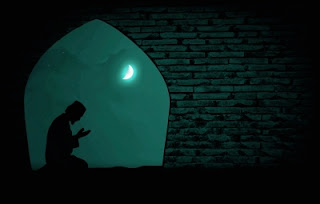It’s that time of the year again, when Muslims around the world gear up to fast during the holy month of Ramadan.
Ramadan, the ninth month of the Islamic calendar, requires the Muslim community to fast during the daylight hours. The fasting doesn't just include starving off meals, but also requires devotees to refrain from drinking water. And of course, the festival is also associated with delicious treats such as kebabs, baida roti and Haleem, which are available across the city.
Significance of Ramadan:
Ramadan is known to be the month when Muhammad, the holy prophet received the initial verses of what later became The Holy Quran. The story also goes that the holy prophet was meditating in the Cave Hira, which is situated on the mountain of Jabal an Nur in Mecca. The night that these verses were revealed to him is marked on the calendar today as Laylat al-Qadr. In these verses, it is believed, that Muslims were instructed to fast for the entire month of Ramadan, celebrating it as a month of worship.
Learn about Ramadan
- Contrary to popular belief, it is not compulsory to fast. Fasting is a choice that an individual makes and is a decision that is completely their own.
- The elderly, young children, those with a medical condition and travellers are excused from fasting.
- Ramadan is not only about abstinence from food, but also from intimate relations, cursing, back biting and anything else considered provocative.
- People often believe that Ramadan is a month of abstinence from food and water for 30 consecutive days, but it’s just abstinence from dawn to dusk. Iftar and the period between iftar and suhoor is the time when you rejuvenate and replenish your body.
The heavy rain and hectic commuting can make it difficult to keep up with your fasting schedule.
These tips will help make your experience easier.
At the time of suhoor, eat food that is healthy, which will keep you satiated for longer, while it is difficult to get up before the crack of dawn and to eat and eat till you’re full, it is vital that you do so in order to have enough energy to power through the day. Pick carbohydrate and protein rich food such as eggs on whole wheat toast, fruits and oatmeal, as these will help you feel fuller and digest slower.
Make sure that you drink just enough water between iftar and suhoor to keep yourself hydrated. Since water is prohibited, this is the only time you will be able to drink water. So drink up, even if it means visiting the washroom every now and then.
For a lot of people, Ramadan is a time of dwindling energy levels, so, try and get as much rest as possible. Avoid vigorous activities as much as possible and take a nap for at least half an hour during the day.
In most Muslim households, iftar is a grand affair, where families dish out lavish spreads. Make sure that you shop for groceries in bulk, so that you’re not spending all your energy on grocery shopping.
If you must exercise when you’re fasting, pick lighter exercises such as walking, which won’t require a lot of energy or tire you out.
If being around people who are eating makes you hungry, just go out for a walk until they are done, or you can also how you feel to them and ask them to go eat elsewhere.
For a lot of people, tempers usually flare when they are fasting, meditating for at least 15 minutes every day will help you control your temper.
Interesting Facts about Ramadan
- There are some interesting facts associated with Ramadan that you may not be aware of. We shed light on a few.
- If you think that fasting actually helps you lose weight, you’re wrong. Most people actually end up gaining weight during Ramadan. This is because people eat more unhealthy food late at night.
- Both Muslim groups sunnis and Shi’ites break their fasts at different times. While Shi’ites wait for the last ray of light to disappear from the sky until they can eat again, Sunni Muslims break their fast when the daily maghrib prayer begins.
- In the TV industry, Ramadan is a long-awaited season. Wonder why? It’s because Arabic, and Turkish studios produce 30 episode miniseries one for each night of the month all year round, in preparation for Ramadan.
- Egypt is known to push back their clock by an hour to make fasting easier because the work day becomes shorter.
- Most people break their Ramadan fast by eating dates that have been harvested in Egypt, North Africa and the Arabian Gulf states. The second most popular option is a fruit juice called jallab, which consists of dates, carob and rosewater.

No comments:
Post a Comment